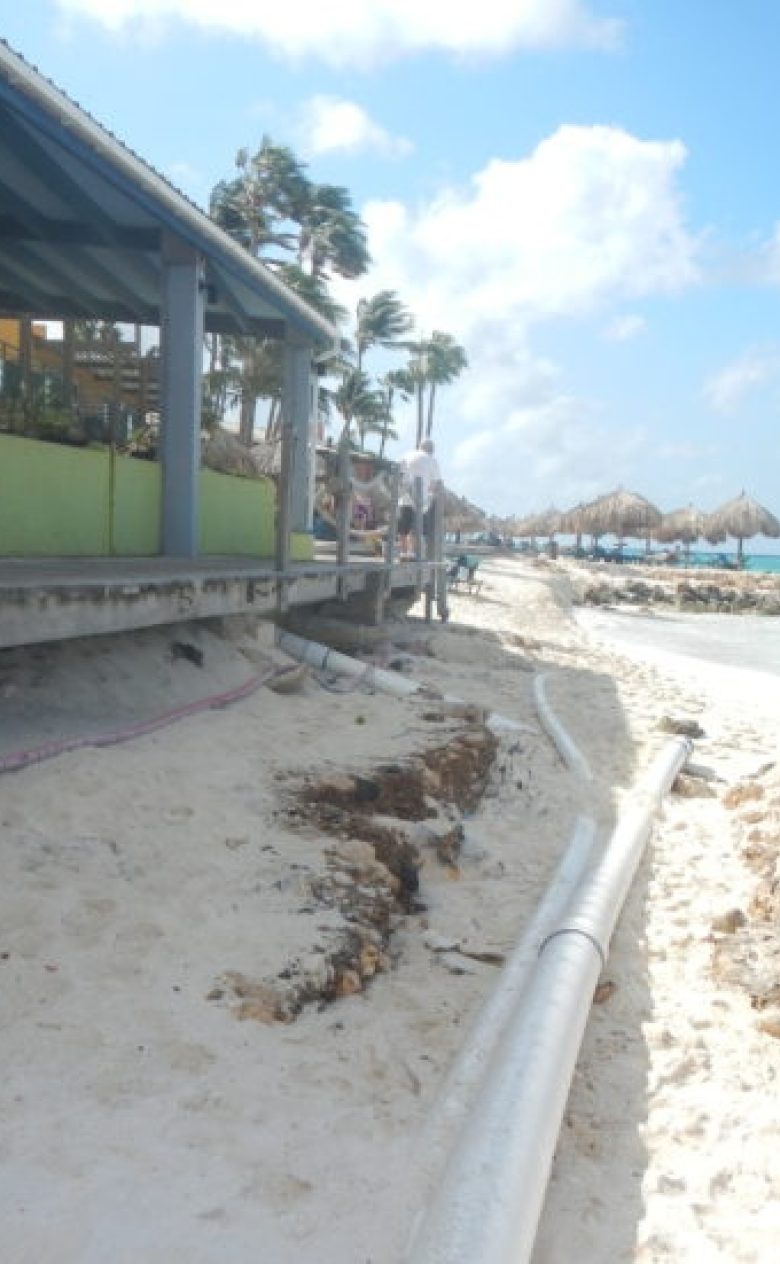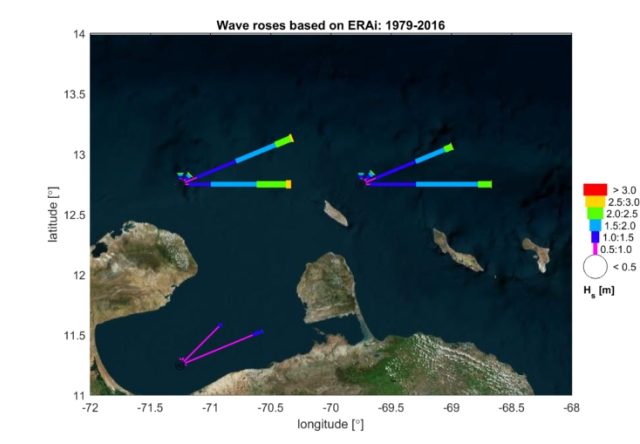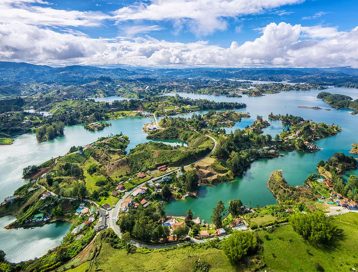Coastal zone management study for Aruba
The beaches of Aruba are widely considered to be among the cleanest, most spacious and spectacular in the Caribbean region. But seasonal beach erosion and decreasing water quality are affecting the beautiful coastline of the island. Commissioned by the Ministry of Infrastructure and financed by the Aruba Tourism Authority, Deltares in association with Witteveen+Bos will conduct a study focussing on the natural and man-made dynamics of the coastline and propose possible solutions.

Increasing pressure on coastline
Tourism on Aruba has increased at a substantial rate during the last decades of the 20th century. About 90% of the Aruban gross national product is earned through tourism or related activities. Increasing tourism also means increasing pressure on the coastline. Coastal erosion is not only affecting the beaches, one of the main resources for the revenue of Aruba, but in some cases also threatens the stability of some of the hotels and restaurants at or close to these beaches.
Currently, coastal erosion is mainly addressed by implementing local beach nourishments, whereas in the past revetments and groynes were often constructed. Water quality is also an issue at some of Aruba’s beaches with sea grass and deposition of fines near the waterline. A new project is being planned to address this issue at some of the beaches.
Understanding the physical system
The objective of the study is to get a better understanding of the physical system on the island in order to improve resilience and derive sustainable solutions. Why is coastal erosion taking place at specific locations, how can this be mitigated and how can the water quality be improved?
The study, including the quantification of coastal hazards and impacts by means of numerical modelling, is a big step towards the setting up of an integrated coastal zone management plan for the island, which does not yet exist
Project leader Alessio Giardino of Deltares
Sustainable development and solutions
Sustainability will be an important keyword through the study and should accompany the future development of the island. The Ministry of Infrastructure has already identified a number of possible ideas and solutions that will be further investigated during the study, making use, when possible of nature-based type of solutions, with limited impact on the environment.
Replicability of tools and solutions to other islands in the Caribbean
The tools developed as part of the study will be generic and could be the basis for the development for other services in Aruba and for the region. As an example, the development of early warning systems which could help forecasting the impact of extreme events, a topic of high relevance after the hurricane events during the last season. Similarly, the pilot solutions developed for Aruba could be used as examples for other islands in the Caribbean. The tools are Delft3D and UNIBEST-CL+.


